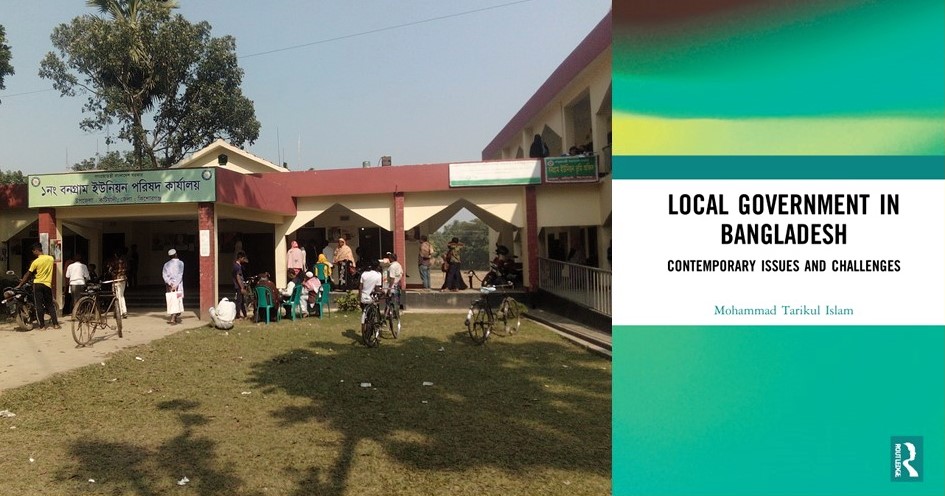
Dr. Mohammad Tarikul Islam
Local government as an inclusive political organization is dependent on freedom, dignity, competitiveness, recognition, planning and management, collaborative leadership, and multi-actor coordination.
The purpose of local governments is to provide order in ways that benefit the broader populace democratically. To run a successful local government, the people elect the leaders with the most faith. Local governments are accountable to and serve the people who live nearby. Its main responsibilities are local government’s executive, judicial, and legislative branches. Because it provides meaningful public engagement and mobilises local resources to enhance local people’s lives, local government is crucial in democratic societies.
I am working to develop a model that will allow for global rural development via the lenses of politics, governance, and human development. My paradigm of local government, “local government as an inclusive political institution”, comprises two basic normative assertions. The first assumption is that inclusive politics for well-being is of vital moral importance. Second, the community must claim inclusive political local government while maintaining dignity and independence to achieve well-being.
I outline seven local government categories as an inclusive political institution: freedom, dignity, competitiveness, recognition, planning and management, collective leadership, and multi-actors’ coordination. Local government serves as a platform for broadening and fostering inclusive politics and rural development. The “improvement of community choice, ownership, and trust enables people to change their fate through dignity and a competitive process.” As a result, “local government necessitates the elimination of major sources of discrimination and inefficiency.”
The term “freedom” refers to the participation of community members in politics and development issues without interference or imposition from political parties or players. Community members can make decisions for the greater good without being swayed by ties to family or patron-client connections.
Dignity is the idea of being respected by others in society by creating mutual respect and trust. Building trust by properly treating community members regardless of caste, creed, religion, education, colour, or income might protect people’s dignity.
Competitiveness refers to the healthy environment prevalent in local politics, enabling people to focus on participative decision-making through vision, action, and voice. It also strengthens the local government’s advantage in identifying credible, skilled, and motivated individuals to support local development through the electoral process.
Recognition refers to acknowledging everyone’s inputs or contributions in various ways and honouring their loyalty to the society in which they live. Recognition appears to pay off differently in this case, as it encourages people from all walks of life to participate in local politics and local development.
Planning and management refer to a well-structured and well-motivated visionary local government that strives to provide the most outstanding public service possible in response to community demand. It can help local governments enhance their decision-making abilities. It enables them to concentrate on a single goal and devise several strategies to help their team reach that goal. It can also assist them in making educated judgements about the activities their team can participate in.
Collective leadership refers to a group of individuals who work together to achieve common goals through sharing decision-making and collaborating at the grassroots level. So that the entire team, such as local government, works together to achieve the same objective with excitement and energy based on a vision and mission. Collective leadership will enable individuals and teams in local government to feel like they are part of something bigger. Sharing decision-making power with those directly affected by the process also promotes collective accountability, where everyone cooperates to ensure the desired outcome is realised.
Multi-actor coordination refers to a coordinated action achieved by mutual adjustment processes that might take the form of organising, planning, and improvisation under the direction of a strong local government. A plan can be viewed as a social construct, a reasonably permanent socially shared unit of knowledge sustained by its daily application for the community’s welfare. To comprehend multi-actor coordination, the political landscape of society must be thoroughly understood, as local politics eventually participate in a coordinated approach to inclusive development.
By applying this approach to local government, competent authorities, including policymakers, can direct change for inclusive development. Advantages include reflecting on communal assumptions and biases, comparing and contrasting different views, and improving researchers’ and practitioners’ critical thinking and problem-solving skills. Relevant actors can increase their knowledge and awareness of independence, dignity, competitiveness, recognition, planning and management, collective leadership, and multi-actor coordination and contribute to making local government competent to provide with the highest sincerity.

Dr. Mohammad Tarikul Islam is a Professor in the Department of Government and Politics at Jahangirnagar University, Bangladesh. Professor Islam has been a visiting scholar at Oxford, Cambridge, Harvard and SOAS. He can be reached at [email protected]. The author bears full responsibility for the facts cited and opinions expressed in this paper.